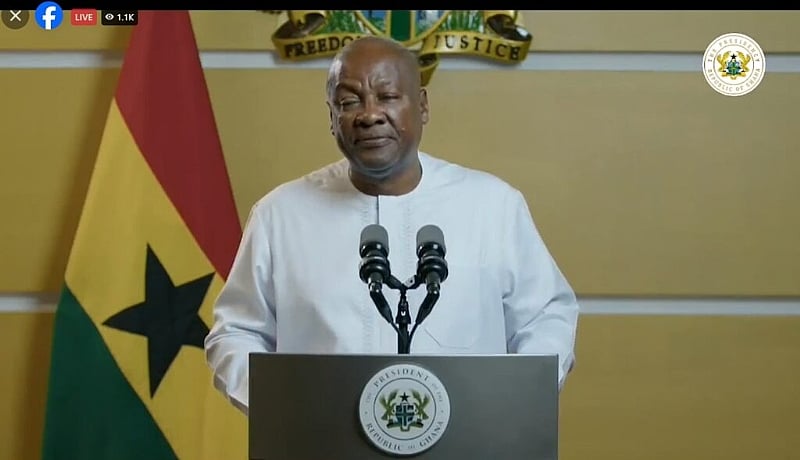President John Dramani Mahama delivered a national broadcast on May 7, offering a comprehensive self-assessment of his administration’s performance within the first 120 days in office. He expressed strong satisfaction with his government’s progress, emphasizing the fulfillment of promises made in his 120-day social contract. The President meticulously outlined the key pledges and provided updates on their implementation, highlighting achievements across various sectors. He anchored his assessment on concrete actions and policy initiatives, showcasing a commitment to transparency and accountability.
One of the foremost promises addressed was the swift formation of his cabinet. President Mahama underscored that he compiled the list of ministers within the first 14 days of his administration, adhering to the stipulated timeline. He further noted that the appointed ministers, having undergone the vetting process, were already actively engaged in their respective roles, driving the government’s agenda forward. This prompt appointment of ministers signified a commitment to ensuring a functioning government and avoiding delays in policy implementation.
The pursuit of a lean and efficient government was another central theme in the President’s address. He proudly declared that his administration boasted the smallest number of ministers in the history of the Fourth Republic, with a total of 56 ministers and deputies. This reduction in government size was presented as a testament to his commitment to fiscal prudence and efficient resource allocation. Furthermore, the President emphasized the introduction of a revised code of conduct for ministers, underscoring the importance of ethical governance and accountability within his administration. He stressed that any violations of the code would be met with appropriate sanctions, reinforcing his zero-tolerance stance on corruption.
President Mahama also highlighted the implementation of recommendations stemming from the National Economic Dialogue. This initiative, designed to foster consensus on crucial economic issues, had yielded positive results. He specifically cited the appreciating value of the cedi as a tangible outcome of the implemented recommendations, suggesting an improvement in the country’s economic performance. This demonstrated the government’s responsiveness to expert advice and its commitment to evidence-based policymaking.
Addressing a key campaign promise, the President explained the rationale behind the continued implementation of the COVID-19 levy, despite earlier pledges to scrap it. He elucidated the intricate connection between the levy and the International Monetary Fund (IMF) program, suggesting that eliminating the levy at this juncture could jeopardize the ongoing negotiations and potentially destabilize the country’s economic recovery efforts. He further elaborated that removing the levy could negatively impact the government’s ability to meet its financial obligations and implement crucial social programs.
In conclusion, President Mahama’s address served as a progress report on his administration’s achievements during its initial 120 days. He highlighted the fulfillment of key promises related to cabinet appointments, a lean government structure, implementation of economic recommendations, and the rationale behind the continued COVID-19 levy. His emphasis on transparency, accountability, and adherence to the social contract signaled a determined effort to build public trust and demonstrate a commitment to delivering on his campaign pledges. He framed his assessment as a demonstration of his administration’s responsiveness to the needs of the people and its commitment to sound economic management. While acknowledging the ongoing challenges, the President expressed optimism about the future and reaffirmed his dedication to serving the nation.














